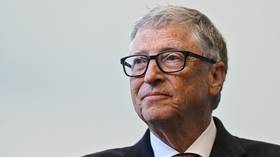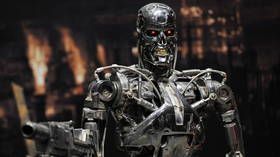Bill Gates challenges AI moratorium

Microsoft co-founder Bill Gates has broken with hundreds of AI researchers and tech leaders and opposed a worldwide pause on the development of powerful artificial intelligence. The software tycoon told Reuters that he believed the technology would bring “huge benefits.”
“I don’t think asking one particular group to pause solves the challenges,” Gates told Reuters on Tuesday, a week after more than 1,000 scientists, researchers, and tech leaders signed an open letter demanding a six-month moratorium on “giant AI experiments.”
“I don’t really understand who they’re saying could stop, and would every country in the world agree to stop, and why to stop,” Gates continued. “Clearly there’s huge benefits to these things … what we need to do is identify the tricky areas,” he added.
The open letter – whose signatories included Tesla CEO Elon Musk and Apple co-founder Steve Wozniak – listed AI’s potential to escape human control, render jobs obsolete, and “replace” human beings as potential outcomes to its continued development. Other AI critics have gone further, with Machine Intelligence Research Institute (MIRI) co-founder Eliezer Yudkowsky warning last week that “literally everyone on earth will die” if AI evolves to the point where it “won’t stay confined to computers.”
The letter explicitly recommended that AI labs stop training their systems beyond the capabilities of OpenAI’s GPT-4 language model, which – according to its creators – can already outperform 90% of humans on a simulated bar exam and score in the 93rd percentile on an SAT reading exam.
Musk was an early financier of OpenAI and has since turned skeptic, while Gates was later to provide his backing but has emerged as an AI evangelist. Microsoft partnered with OpenAI in 2019 and handed the firm $1 billion to build a human-level artificial intelligence on its Azure cloud computing platform, and the software giant announced another investment of up to $10 billion in OpenAI in January.
“The age of AI has begun,” Gates wrote in a blog post last month, published a day before Musk’s letter. AI “will change the way people work, learn, travel, get health care, and communicate with each other,” he continued, claiming that the technology will help teach disadvantaged children, assist doctors working in poorer countries, and fight climate change, although he did not explain exactly how it would handle the latter task.













